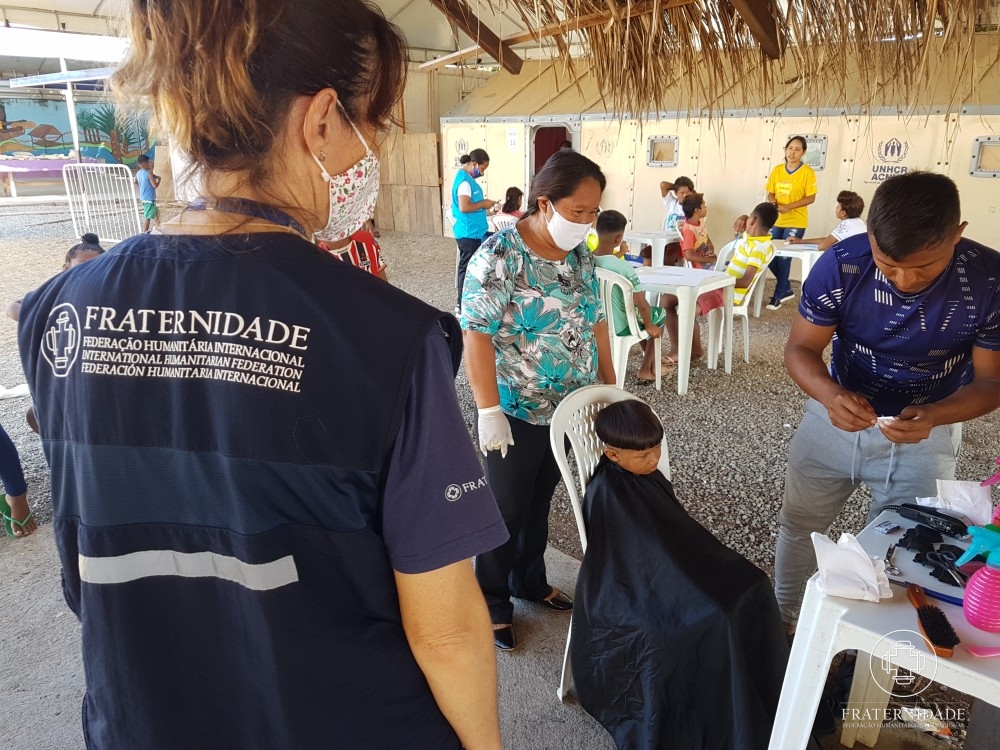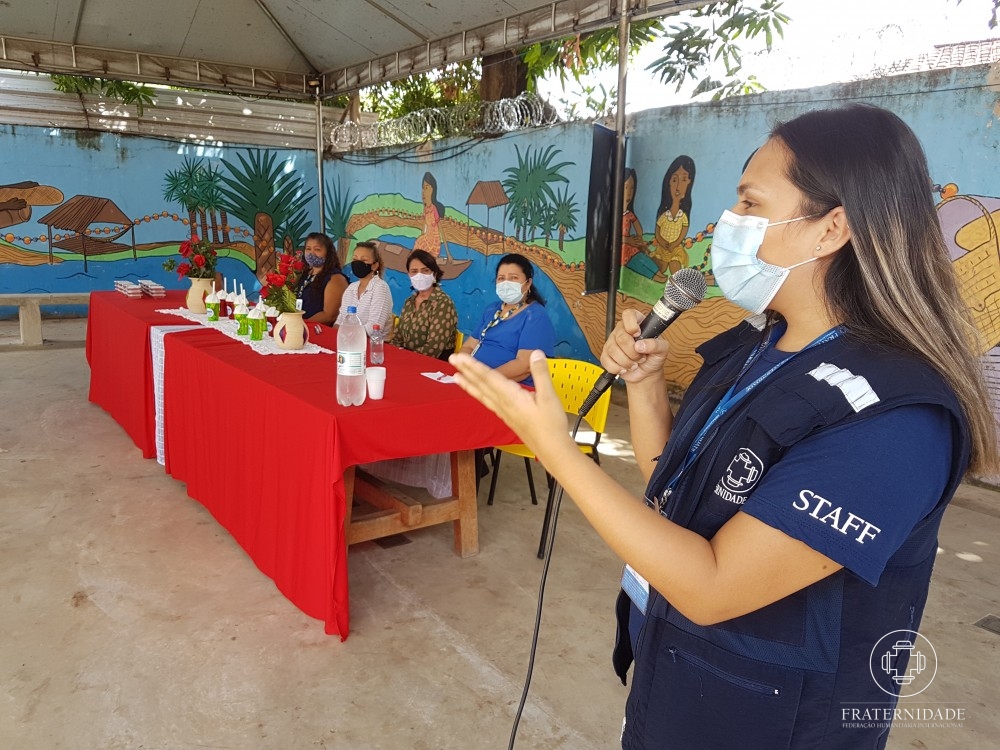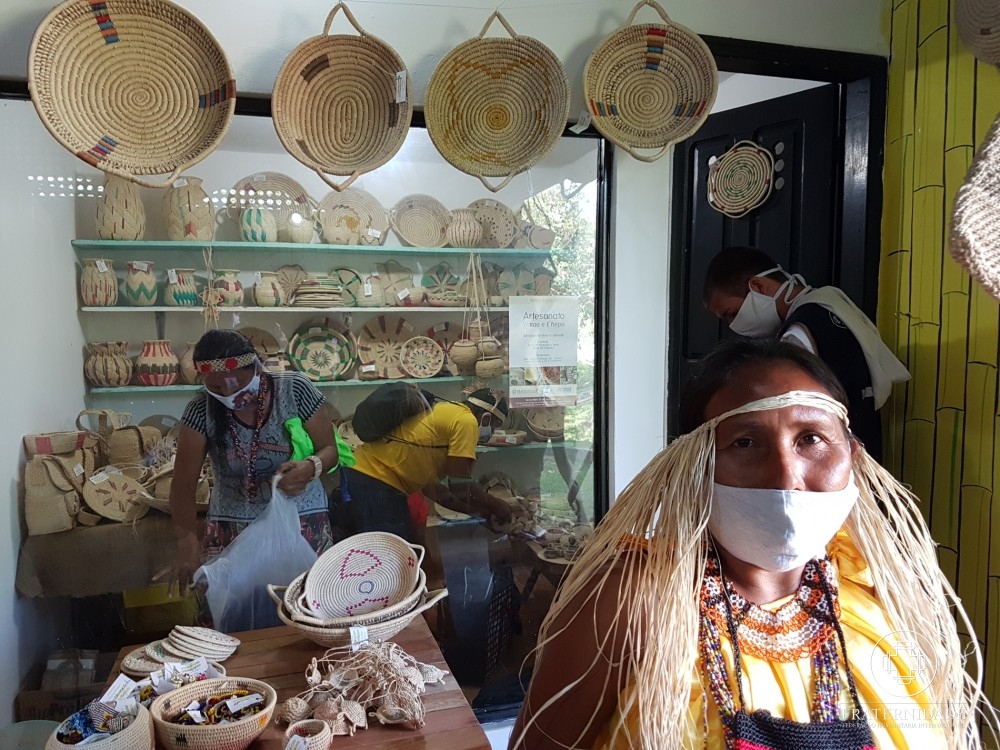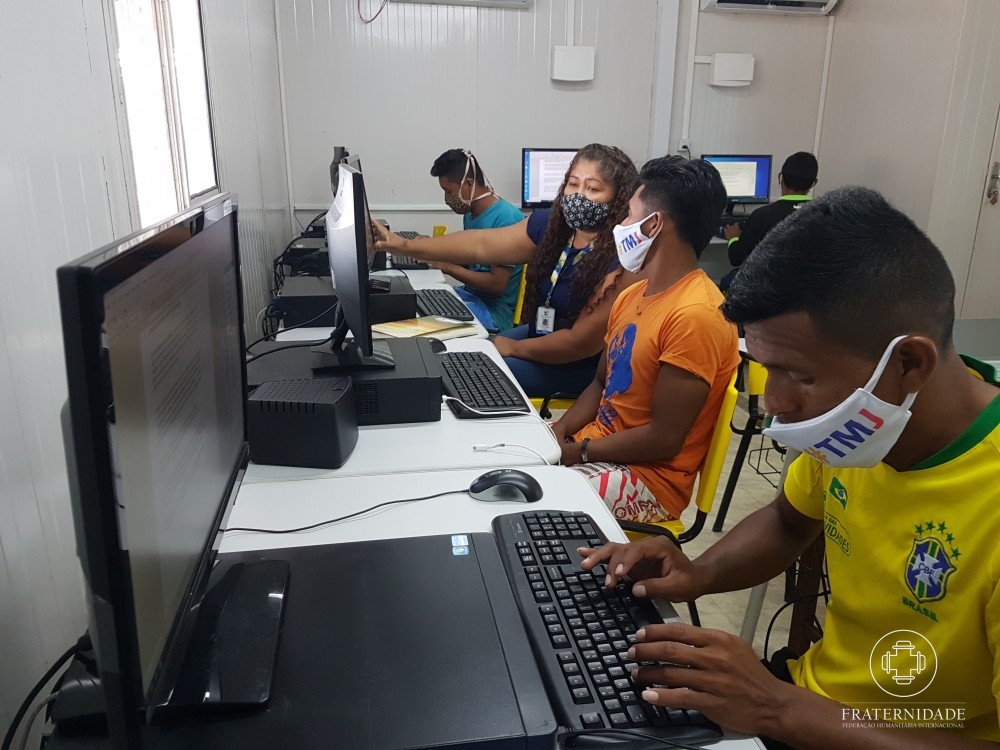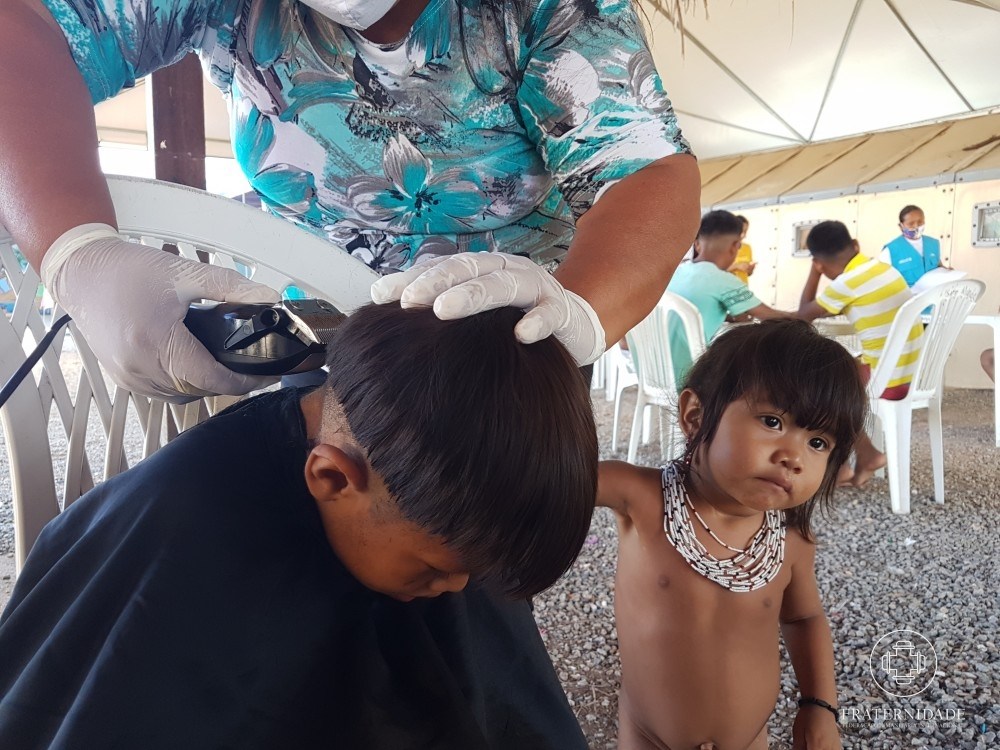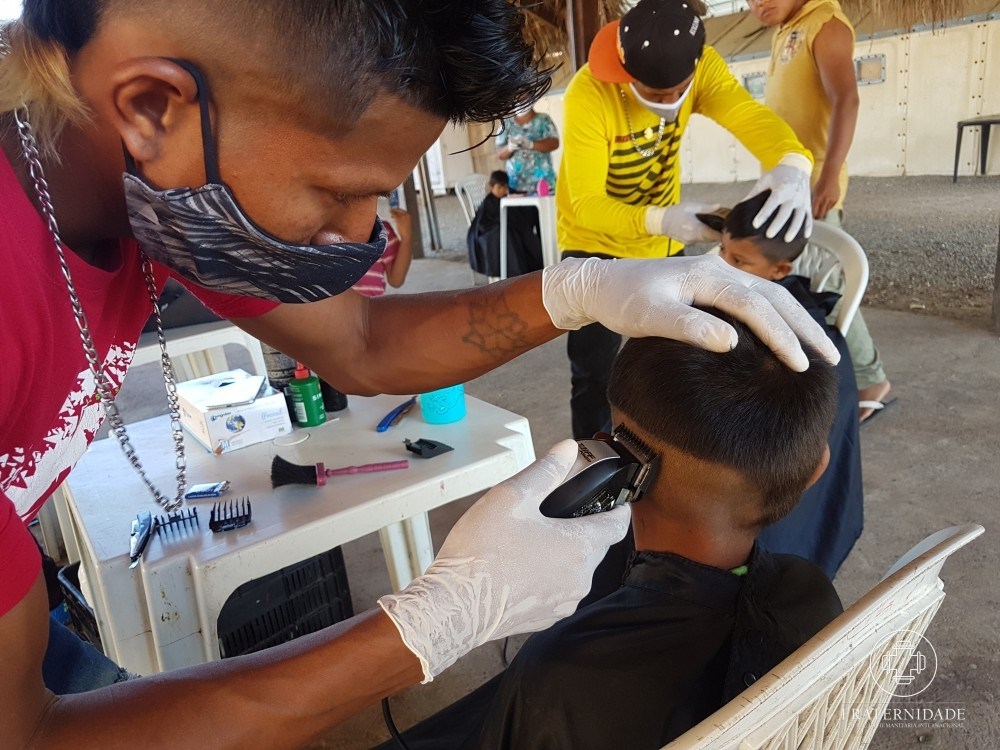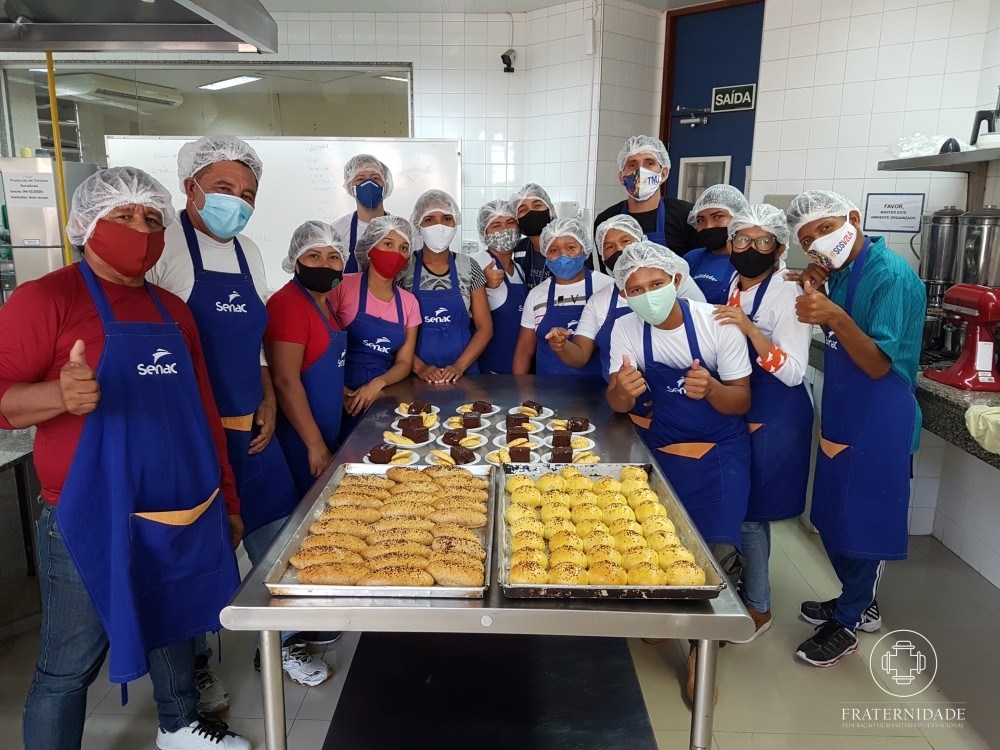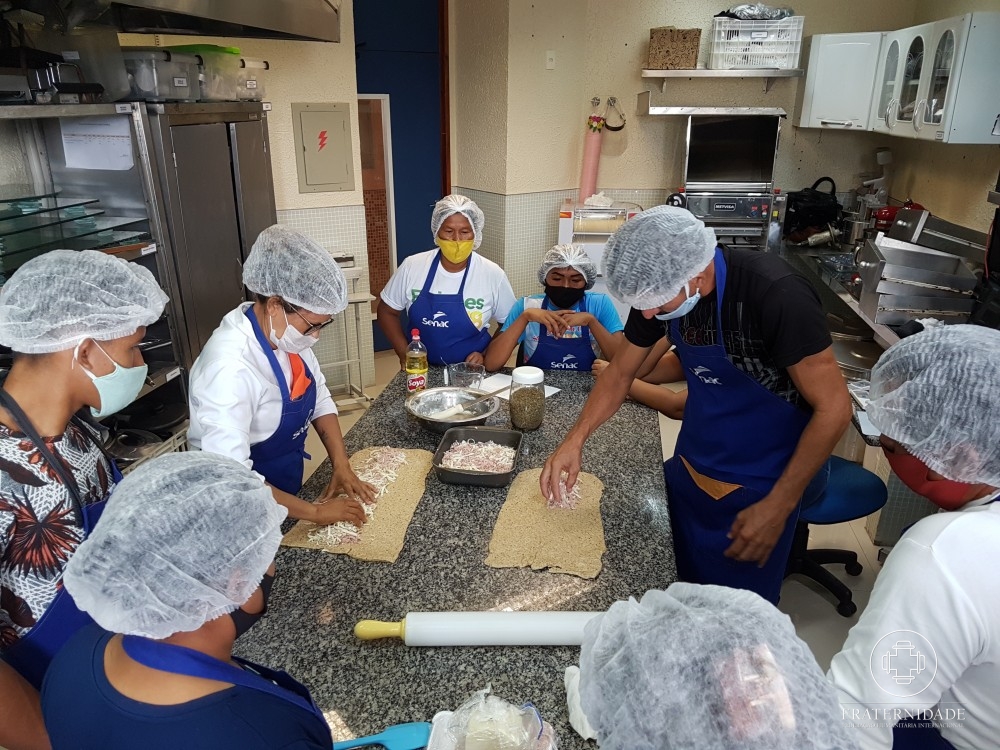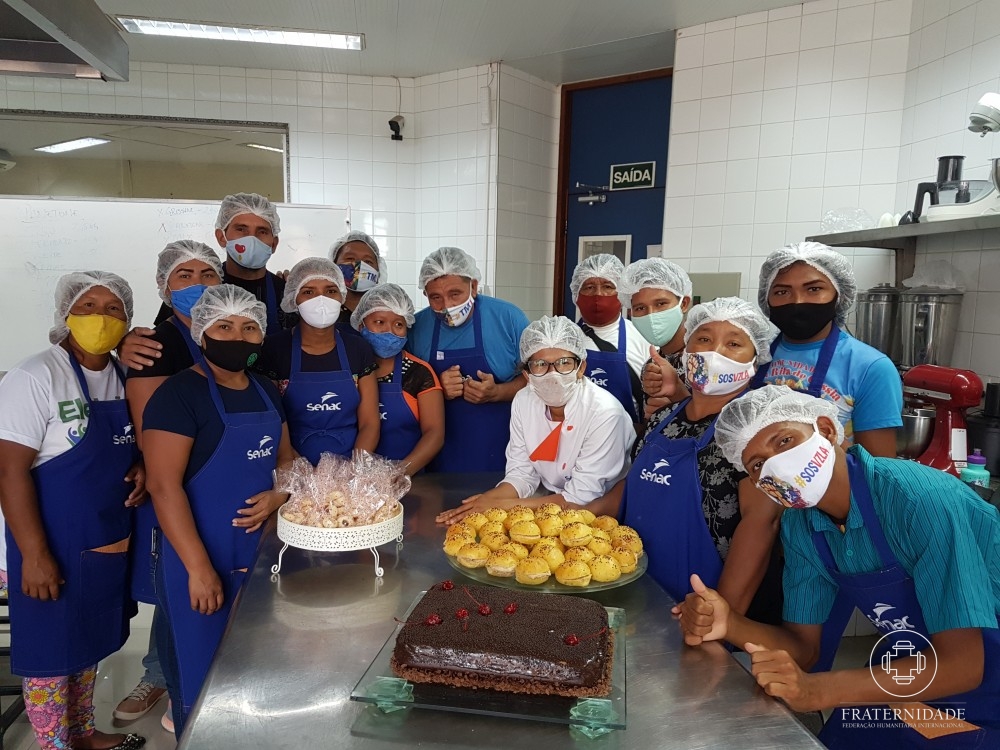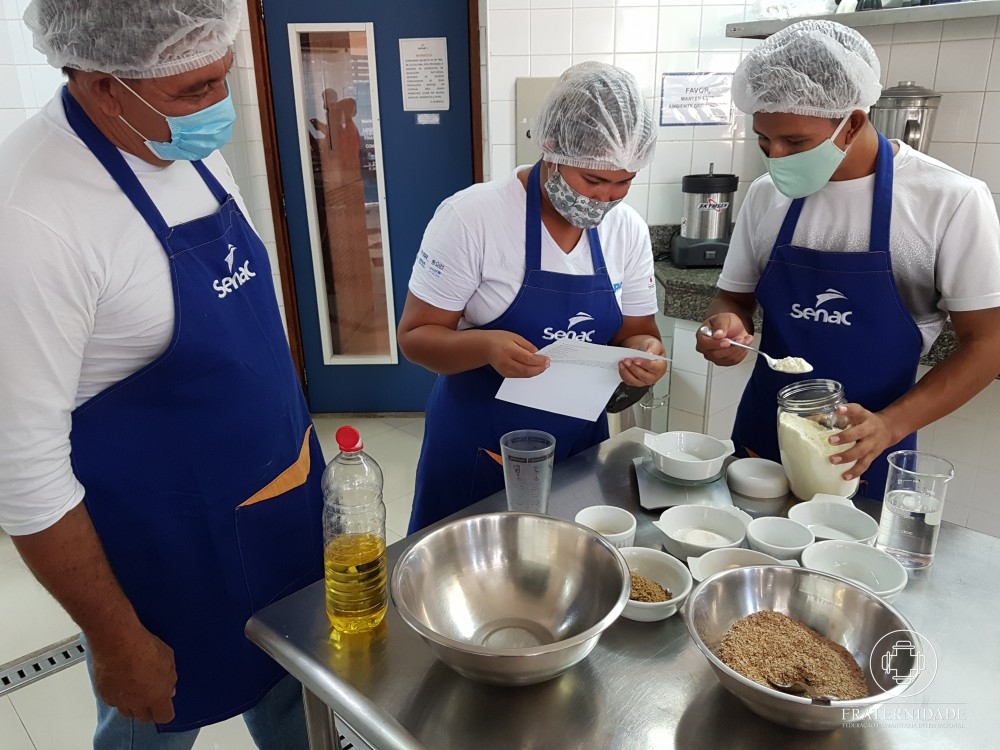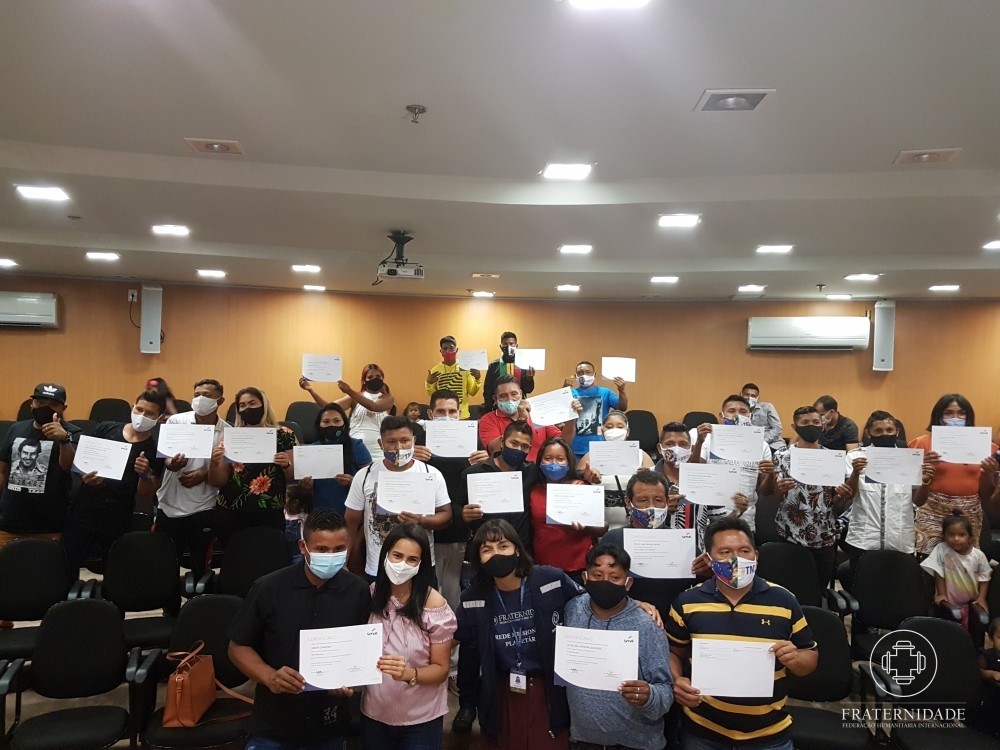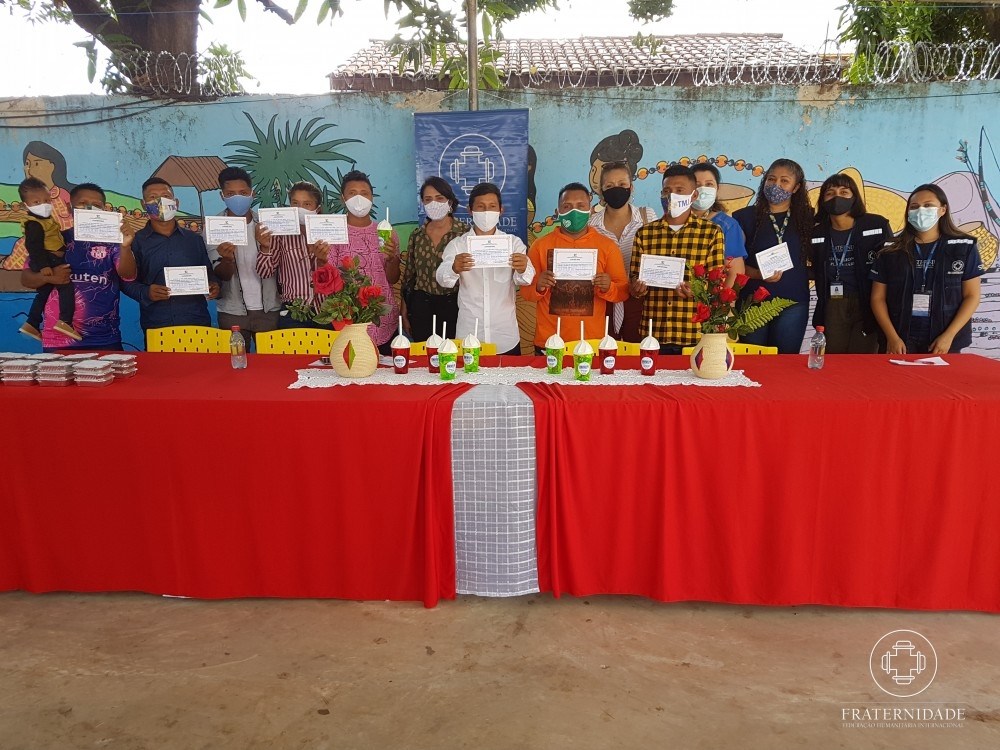Venezuelan indigenous refugees participate in vocational courses promoted by the Humanitarian Fraternity (FFHI)
In the social organization of indigenous peoples, in their original context, there is a particular group that is in charge of the protection of the group, of hunting, and the exploration of new territories – it is the lineage or clan of the warriors. Especially in the work of exploration, they serve as the spearhead that faces the dangers and opens the way for the whole population to benefit.
Invoking this ancestral archetype of the warrior, a group of representatives of the Warao tribe, coming from Venezuela and living in Brazil as refugees, offered to pioneer new paths in the context in which they currently live. Far from their territory, immersed in a non-indigenous culture in another country, facing a language different from their own, the courageous pioneers participated in the first training courses offered by the Fraternity – International Humanitarian Federation (FFHI) to the recipients of the indigenous shelters under their management.
Inspirada pelo artigo 23 da Declaração dos Direitos Humanos da ONU, o qual prevê que: “Toda a pessoa tem direito ao trabalho, à livre escolha do trabalho, a condições equitativas e satisfatórias de trabalho e à proteção contra o desemprego”, a Fraternidade – Humanitária (FFHI) vem buscando soluções para um tema delicado, que é a situação das populações indígenas venezuelanas que migraram para o Brasil e sua busca por subsistência.
Imer, missionário que está colaborando com este trabalho, afirma que a principal barreira enfrentada neste caso é o idioma, pois “a maioria fala o espanhol, mas como segunda língua”, já que a língua materna é a da etnia indígena a que pertencem. Outro fator é que “os meios de subsistência deles eram informais na Venezuela, o que torna o acesso ao mercado de trabalho brasileiro mais complexo.”
Administrando os três abrigos indígenas existentes no estado de Roraima, onde vive grande parte destas populações migrantes, a instituição tem focado sua atenção em desenvolver parcerias e promover oportunidades para que os refugiados indígenas possam ter as mesmas possibilidades de se inserir no mercado de trabalho e de viver uma vida digna que são ofertadas aos demais refugiados venezuelanos no Brasil, na louvável resposta que vem sendo desenvolvida pela soma de esforços do governo, das agências da ONU e de dezenas de agentes humanitários.
Administrando os três abrigos indígenas existentes no estado de Roraima, onde vive grande parte destas populações migrantes, a instituição tem focado sua atenção em desenvolver parcerias e promover oportunidades para que os refugiados indígenas possam ter as mesmas possibilidades de se inserir no mercado de trabalho e de viver uma vida digna que são ofertadas aos demais refugiados venezuelanos no Brasil, na louvável resposta que vem sendo desenvolvida pela soma de esforços do governo, das agências da ONU e de dezenas de agentes humanitários.
Since the founding of the indigenous shelters, Pintolândia in Boa Vista, and Janokoida in Pacaraima, in 2017, the search for lasting solutions has been one of the work fronts of the shelter manager, with the aim of providing the refugee population with means of subsistence that would allow it to not be exclusively dependent on the assistance of the humanitarian response. The work with handicrafts was especially stimulated and financed by the partnership with the United Nations High Commissioner for Refugees (UNHCR), up to the formation of a group of artisans who are moving towards the creation of their own association.
In 2020, after the stabilization of the most urgent emergency phases of the humanitarian response, with regard to shelter, food, health and security, the work of the Humanitarian Fraternity (FFHI) was able to focus more on lasting solutions. After having had a successful experience in providing certified courses for the recipients of non-indigenous shelters, between the months of November and December, the first three professional courses for indigenous refugees of the shelter were held – our pioneer explorers at the beginning of this article.
In partnership with the Virtual University of Roraima (UNIVIRR), and using the Computer Science Room of the Pintolândia Shelter, with assembled computers received as a donation through a partnership with the Federação das Indústrias of the State of São Paulo (FIESP), a 60-hour course on basic Computer Science was held, which gave initiation to the universe of computing and certified nine brave student-explorers.
Financed by the UNHCR, the institution also promoted two courses at SENAC (National Service of Commercial Learning), with private classes, for the recipients of the Pintolândia and Janokoida Shelters. The course in Men’s Haircuts, of 40 hours, had 12 students certified, many of which already had quite a lot of experience in that area, and now, having a certificate from SENAC, broadly recognized, they will have more opportunities for finding an opening in the job market. The Basic Bakery Techniques course, also with 40 hours, trained 15 students, who throughout the course showed a lot of talent for cooking and teamwork, which opens the door for, in the future, thinking about other forms of entering the market, using as a reference the success story of the artisans.
João Henrique Lago, coordinator of SENAC-RR courses, highlights that the main characteristic and differential of the groups that participated in these two courses was the will to learn. He says that “in spite of the challenges, especially the language, they did, in fact, make a very good response, in the sense of wanting to learn, in the sense of being ready to receive the information and take it from there for their lives.”
During the two weeks, the brave pioneer explorers were transported by bus to the SENAC, where they spent the mornings in contact with a scenario very different from the daily life of the shelters. In this venture of the exploration of new territories, they were able to learn not only professional techniques, but were going through an experience of cultural insertion, which brought them elements for enriching their framework of knowledge and experiences as human beings. More than technical training, there was life training, exploration of new cultural territories. And in this case too, as a spearhead, these pioneers are paving the way for the achievement of the dignity of the entire Venezuelan indigenous refugee population in Brazil, despite the countless diversities that are being faced.


